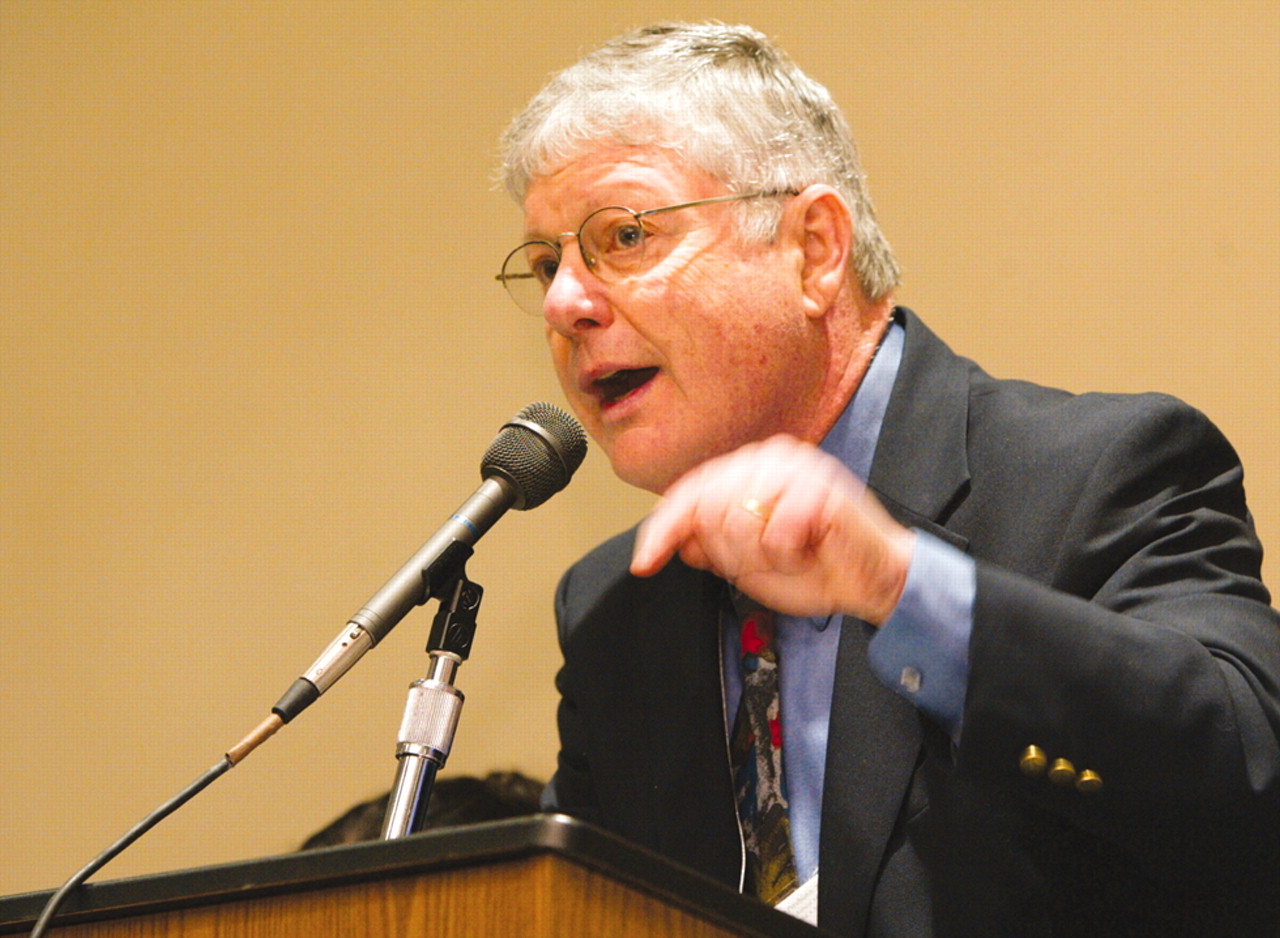Need to Prove Psychotherapy Competence Fuels Heated Debate
Is the recent mandate that residents prove their competence in psychodynamic psychotherapy a valuable addition to training the next generation of psychiatrists? If the passionate arguments made during an APA annual meeting debate last month in New York City are an accurate barometer, substantial disagreement exists among leading psychiatric educators over this issue.

Joel Yager, M.D.: “Would you want a surgeon who is certified as competent on a pencil-and-paper test or after a couple of clinical experiences?”
In 2001 the Residency Review Committee (RRC) for psychiatry—part of the Accreditation Council for Graduate Medical Education—implemented a requirement that graduating psychiatry residents had to demonstrate competence in five forms of psychotherapy. The RRC was motivated by a training shift—propelled largely by the managed care juggernaut—away from longer-term psychotherapies to a reliance on pharmacological treatments and brief psychotherapy.
Whether the RRC requirement is a step forward or just a nuisance, at least for one of these modalities— psychodynamic psychotherapy—was the topic of the debate.

Alan Tasman, M.D.: “No modality teaches residents to think more specifically about individualized treatment than psychodynamic psychotherapy.”
To allow psychiatry residents to graduate without demonstrating competence in psychodynamic psychotherapy does a disservice to residents and their future patients, since it fails to ensure that the trainees learn to weigh crucial motivating factors of which their patients are unaware, said Lisa Mellman, M.D., associate residency training director in the psychiatry department at Columbia University. It is not unreasonable to insist that residents demonstrate an appreciation of “how what appears on the surface is only the beginning, and how desperately we all try to hide from ourselves.”
In addition, residents must understand why and when their emotions affect a session. Thus, psychiatry residents need to have a solid grasp of key psychodynamic concepts such as transference, counter-transference, defense, and resistance, Mellman stressed.
Anticipating her debate opponents' arguments, she maintained that psychodynamic psychotherapy is not hard to teach to the level of competence, but doing so requires the department to commit resources and arrange for extensive experience with actual patients.
“Without standards for measuring competency, programs will set the bar at a level of skills acquisition they can already achieve,” she said in making the affirmative-side's argument. Mellman was on the Executive Council of the American Association of Directors of Psychiatric Residency Training when it developed recommendations for the RRC on criteria for evaluating psychotherapy competence.
Eugene Rubin, M.D., strongly disagreed with Mellman's arguments, however, insisting that he was not opposed to the teaching of psychodynamic psychotherapy, but did think it was a mistake to “elevate” one or even several treatment modalities “by setting separate competency requirements” for them.
Rubin, a professor of psychiatry and vice chair for education at Washington University in St. Louis, insisted that placing this type of emphasis on psychodynamic psychotherapy is “not in our field's best interest.” It is more important that psychiatric educators have the flexibility to incorporate psychiatry's rapidly evolving treatments and scientific knowledge into their programs, he said.
“Demonstrating true competence is very time consuming,” Rubin stated, adding that he sees no convincing justification for taking training time from other areas for a modality “that at best has limited evidence of efficacy.” It would be more effective, he added, to insist that residents demonstrate “in-depth experience in one or two” treatment modalities rather than formal competence in the five psychotherapy modalities that the RRC now requires. These burdensome requirements amount“ to tying our hands behind our backs,” Rubin emphasized.
“We need to have the flexibility to allow trainees to gain the tools for lifelong learning” in genetics, neuroscience, imaging, and cognitive science, all of which will soon produce clinical applications at a rapid rate.
Rubin's debate partner, Joel Yager, M.D., of the University of New Mexico questioned whether the tests that psychiatry residents have to take to fulfill the RRC requirements even come close to measuring competence. They may measure the knowledge that residents have gained, but psychiatrists and other physicians do not achieve true competence until they have been in practice for several years. “A developmental maturation process” is required before someone can become a “competent psychotherapist,” he said.
“Would you want a surgeon who is certified as competent on a pencil-and-paper test or after a couple of clinical experiences?” he asked. A requirement that forces training supervisors to declare that residents have achieved competence in psychodynamic psychotherapy or the other psychotherapy modalities “puts them in the position of being a hypocrite and a liar,” Yager maintained. (Paper-and-pencil tests are one of several methods that programs use to assess psychotherapy competence.)
Allan Tasman, M.D., Mellman's partner in arguing for keeping the RRC competency requirement, challenged Rubin's contention that it robs residency directors of the flexibility they need to teach the array of treatment modalities they think are critical for their trainees to possess.
“No one argues that [psychodynamic psychotherapy] is all we should teach,” stressed Tasman, chair of the psychiatry department at the University of Louisville. “We argue that it's one of many things we must teach.”
He urged the audience to ponder the idea that if freeing up more time is such a key variable, why not, for example, choose to sacrifice other tools needed by competent psychiatrists, such as being able to assess suicidality in emergency situations?
“No modality teaches residents to think more specifically about individualized treatment than psychodynamic psychotherapy,” Tasman said. And without the RRC requirement, psychotherapy training would be a“ second-class citizen in our training programs.”
The critical issue at stake in the debate, Rubin emphasized, is how those who decide how psychiatrists will be trained balance the need to ensure that residents are equipped to choose the most appropriate treatment from a growing—and often competing—array of effective modalities.▪



